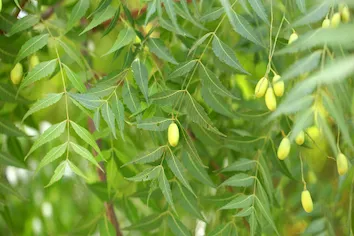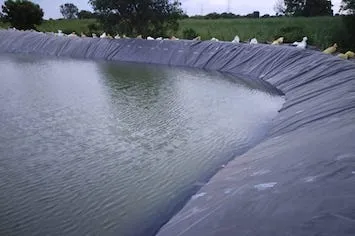 ਵਾਪਸ
ਵਾਪਸ
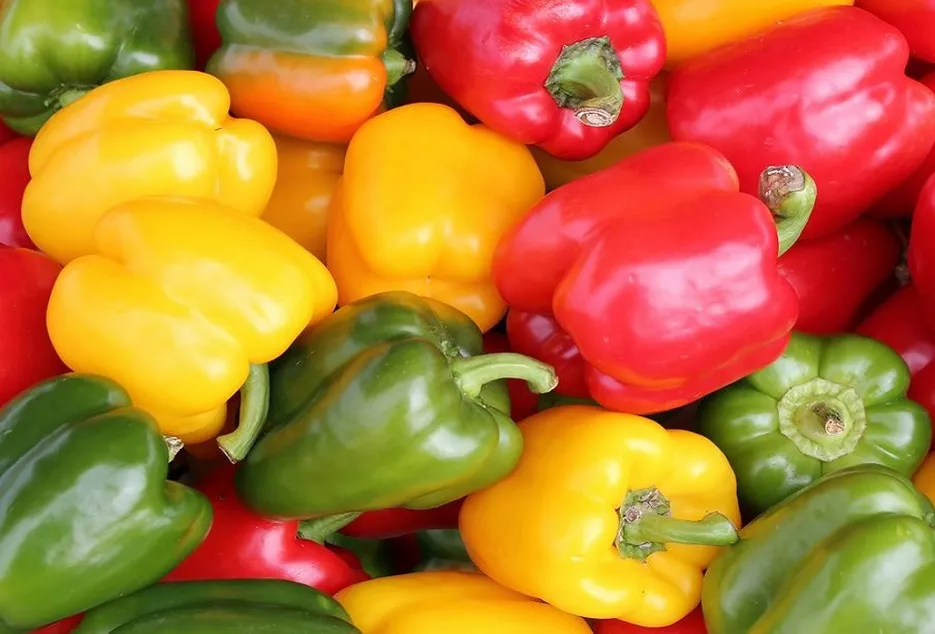
Bell Pepper has many names such as Sweet Pepper, Blockey Pepper, Capsicum, This crop originated in Central and South America.The fruits are loaded with Vitamins & Minerals contains like Vitamin C,B6,K1,E,A etc.
Cultivation Practices:- We are giving the best cultivation practices for Bell peppers in greenhouse conditions.
Cultivation Practices:- We are giving the best cultivation practices for Bell peppers in greenhouse conditions.

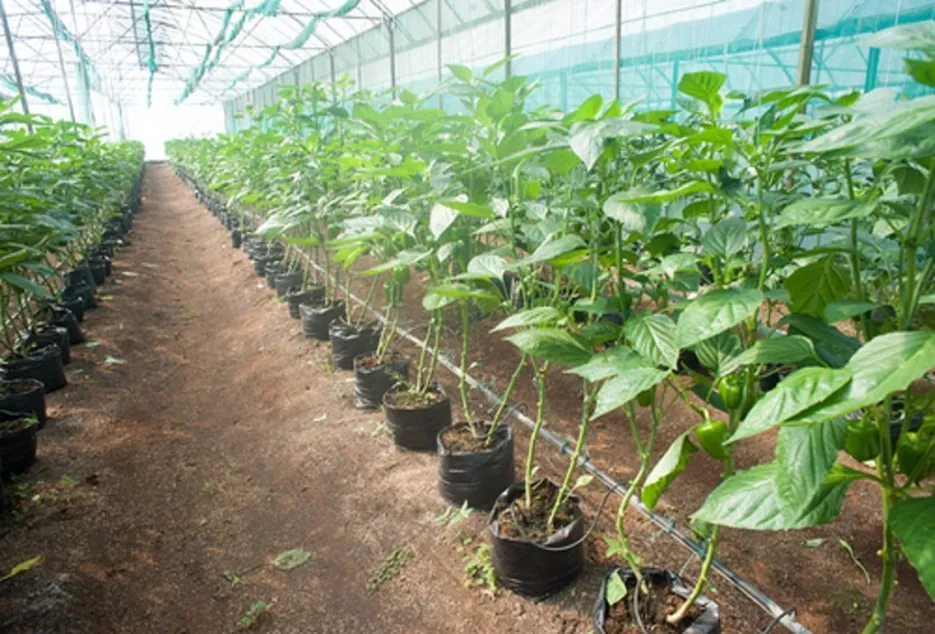
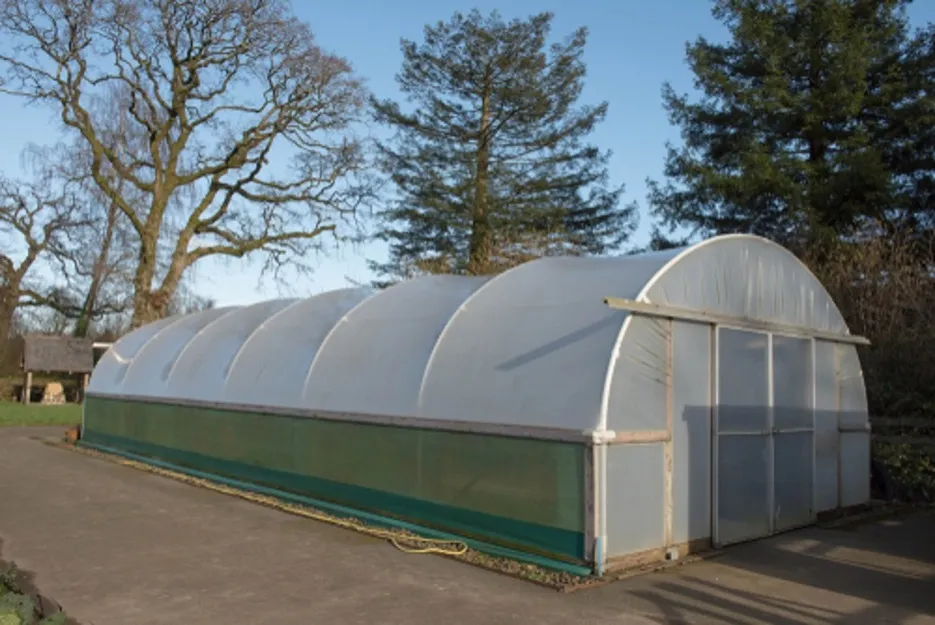
Selection of Seedlings
Selection of Seedlings
Seedlings should be selected from well managed reputed nurseries. 30 to 35 days seedlings with a well developed root system are suitable for transplanting
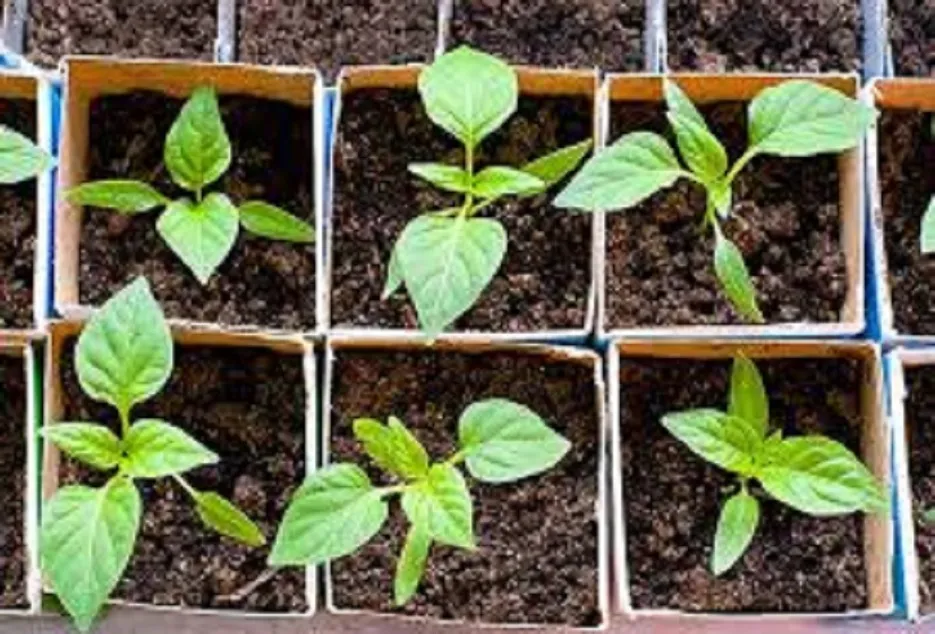
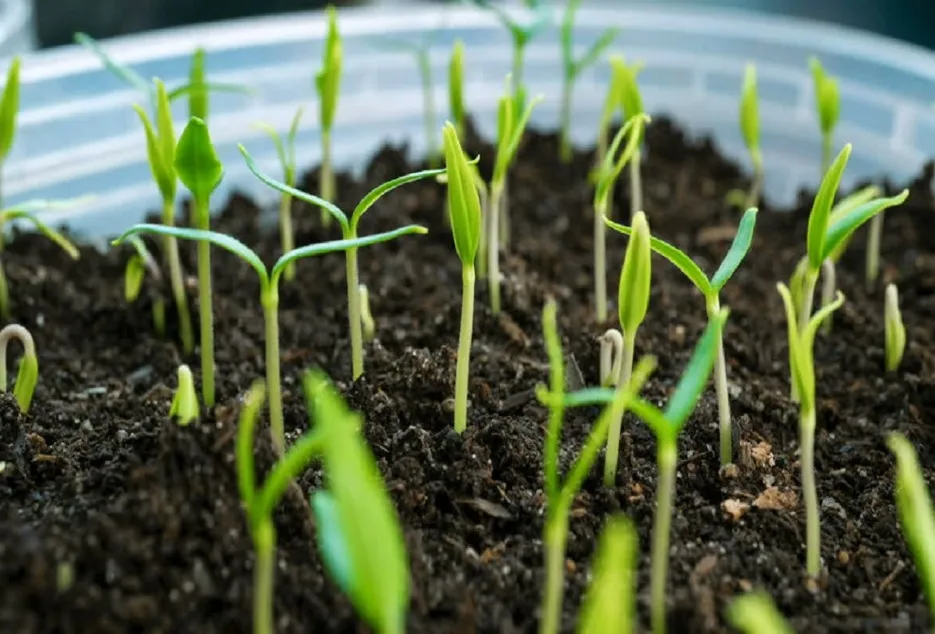
Hybrids
Hybrids
Select hybrids from the Seminis brand having good suitable for your area.
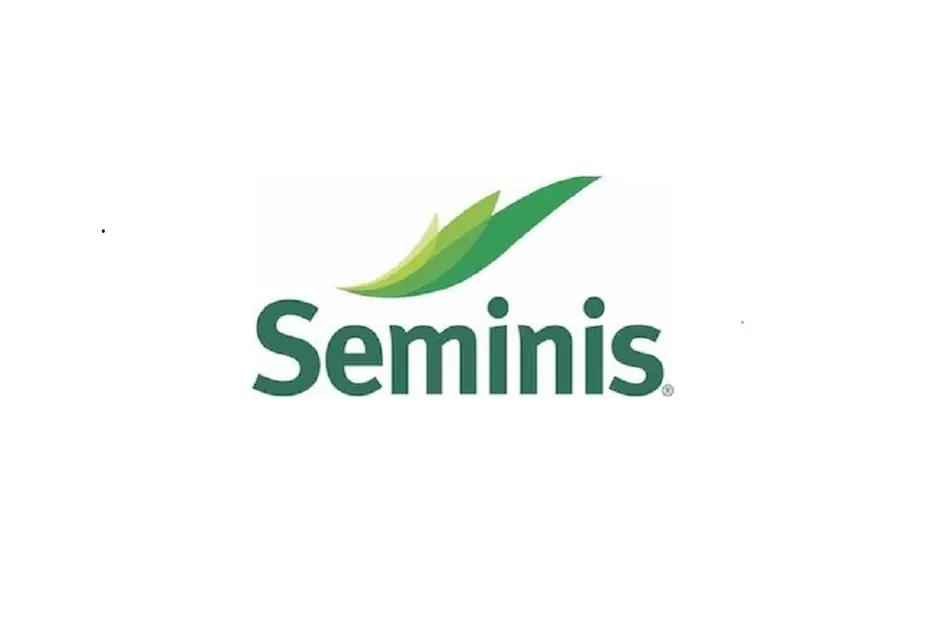
Land Preparation
Land Preparation
At the time of Land Preparation or Bed Preparation: Add 25-30 Metric tons of well decomposed Organic Matter(FYM) and Biocontrol Agents such as Trichoderma, Pseudomonas, Beveria, Paecilomyces, and VAM according to the Universities recommendation. The other fertilizers that can be added in kilograms per acre are DAP 100, MOP 50, SSP 100, Neem Cake 200, Magnesium Sulphate 50 Ammonium Sulphate 50, Boron/borax 10.
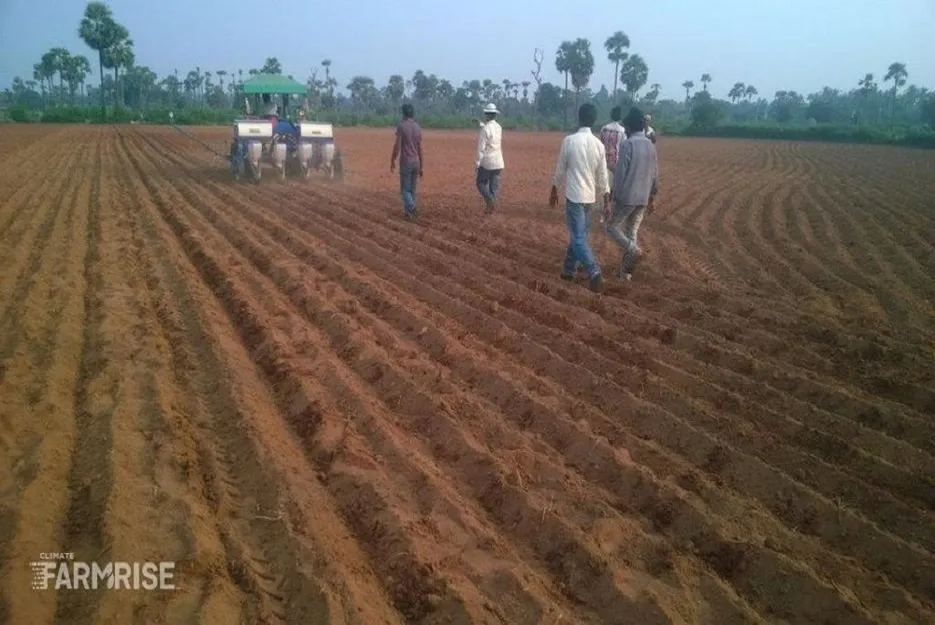
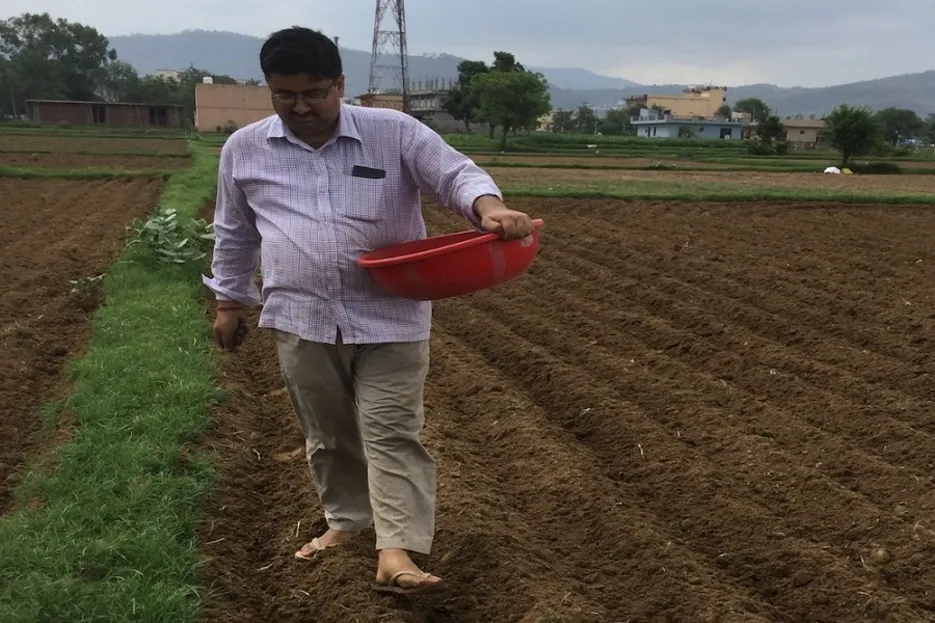
Spacing
Spacing
Maintain row to row spacing of 50 centimeters and plant to plant 40 cms. In between the rows maintain a path of 60 to 80 cms for management of the crop.
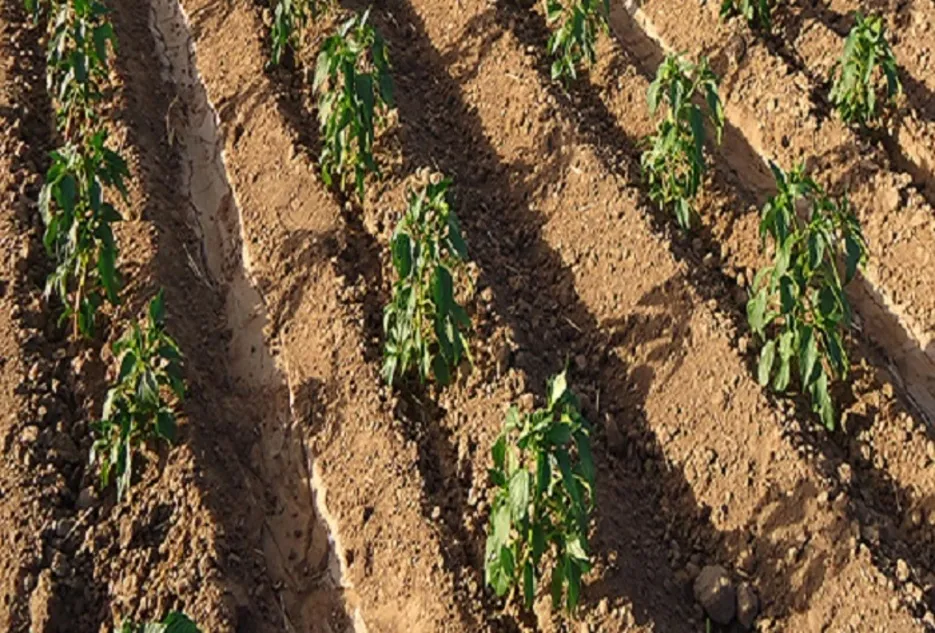
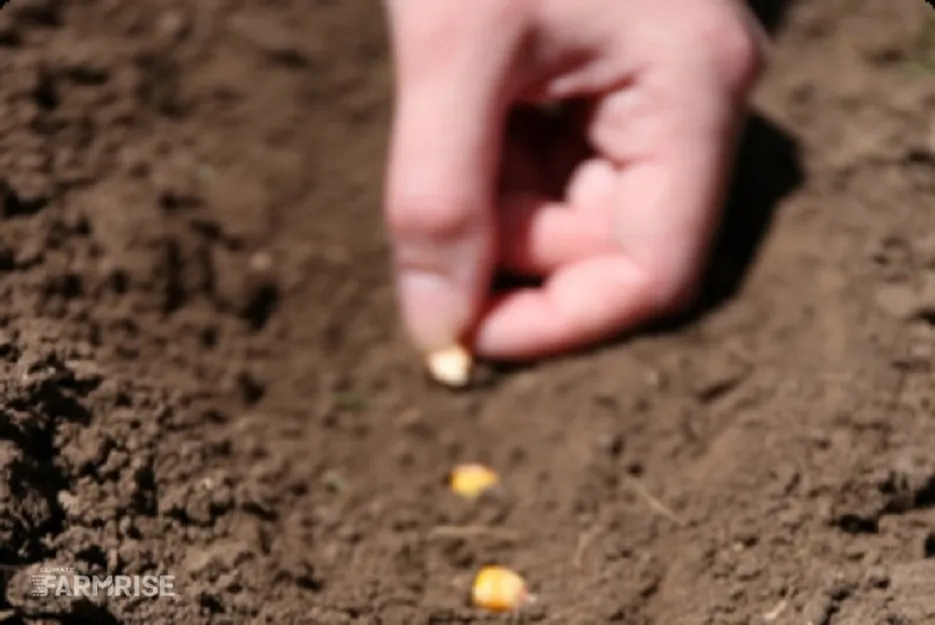
Planting method
Planting method
Adequate moisture must be available in the soil at the time of plating Planting should be done by making holes on the bed in a zigzag manner as per the spacing and holes should not be too deep, Normally planting should be done in the evening hours.
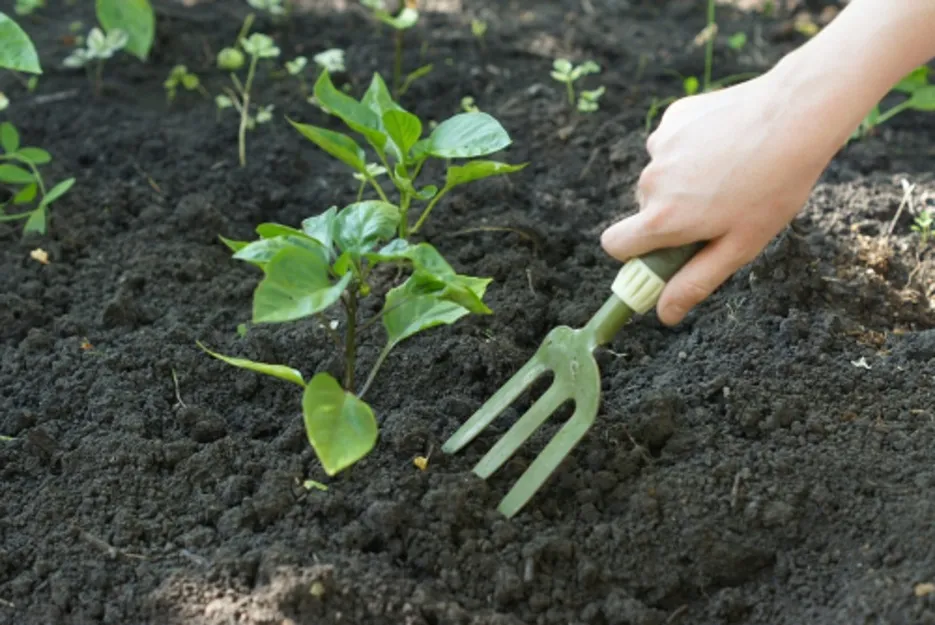
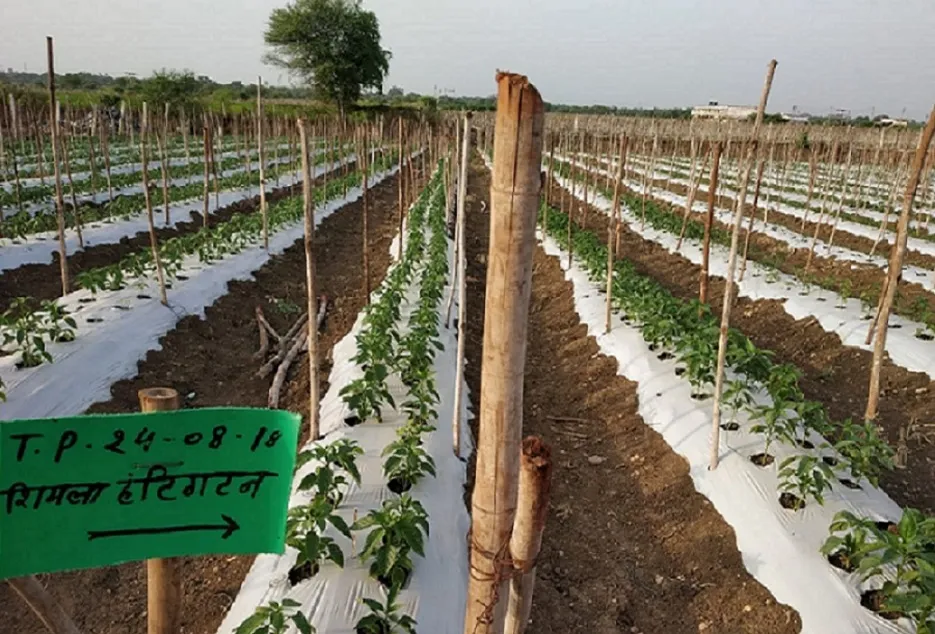
Fertigation Schedule
Fertigation Schedule


The fertigation or drip schedule is based on the soil nutrient status. The following fertilizers are to be applied at recommended doses based on the crop age. Calcium Nitrate (CN), Potassium Nitrate(13:00:45) Mono Potassium, Phosphate (00:52:34), Magnesium Sulphate, (MgSo4), Sulphate of Potash, Zinc Sulphate (ZnSo4), Manganese Sulphate (MnSo4) Copper Sulphate. Ammonium Molybdate/Sodium Molybdate. These nutrients are to be applied weekly 3 times at recommended doses starting from 60 days after transplanting. Please consult the plant nutrition expert for the exact doses of these nutrients to be applied at different growth stages.
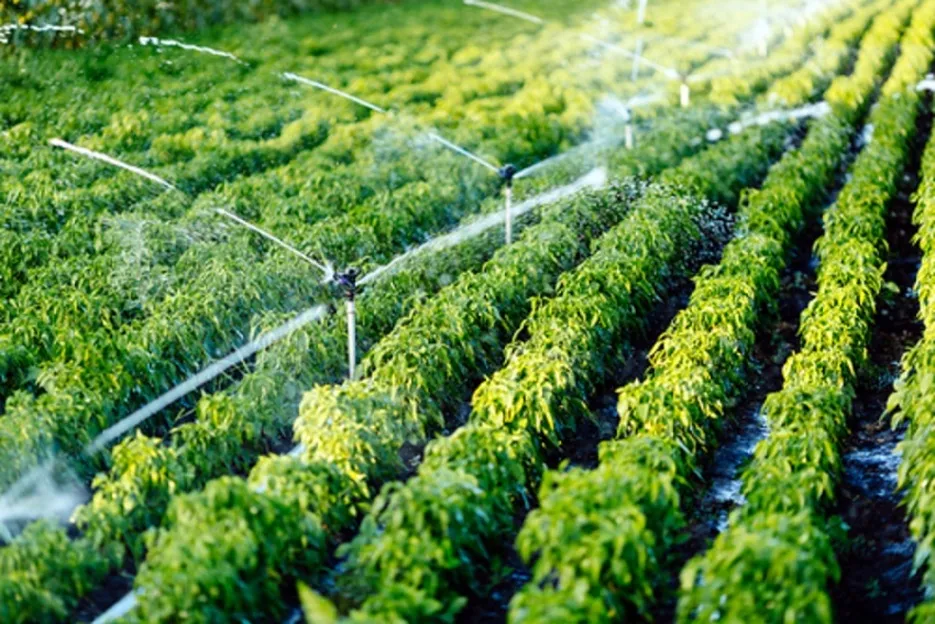
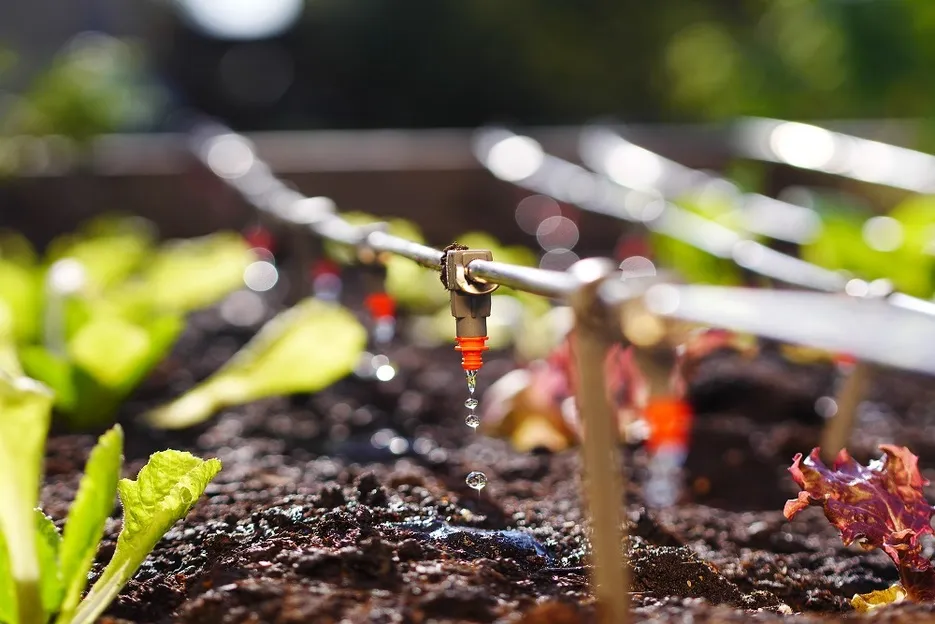
Pruning
Pruning
Generally, at the stage of 25-30 days after planting, choose, and select the best strong stems. Keep stronger and thicker 2 to 3 stems and remove remaining stems. Pruning is a continuous process and should be done once in 12-15 days after 1st pruning plant Density and Pruning also depends on growing season and germplasm Generally Indian growers allow 3 stems per plant Depending upon the system, season, seedling age and germplasm, days to first pruning may vary 2 stems practice supports for better size and shape of the fruits even in the later harvests.
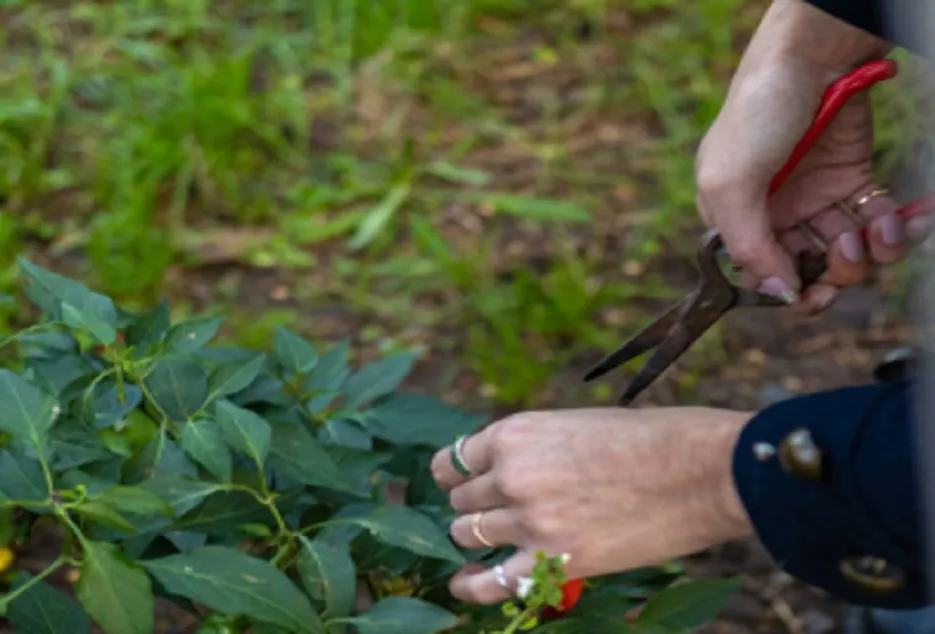
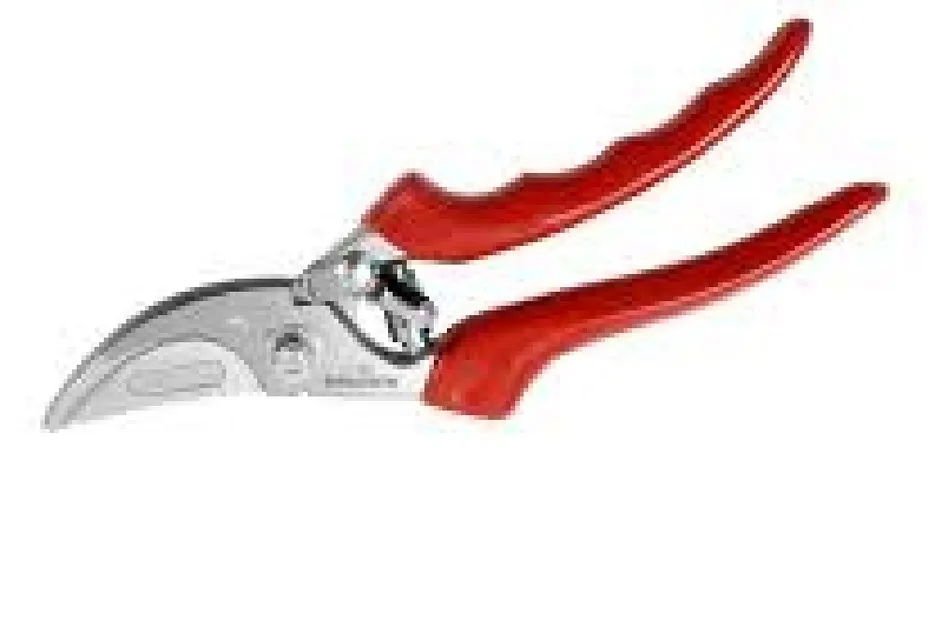
Training or Roping method
Training or Roping method
From the overhead support wires, twine/thread is hung and used to support each of the plants’ stem Twine used is tied to the plants’ main stem about 15- 25 cm up from the ground or just below the first split One length of twine is used for each stem Twine should not be tied too tight, as stems grow and expand, stems can be damaged due to tight loop Training should start immediately after selecting strong stem, generally after 30-35 days after planting Training once in 15 days gives strong support to the plant Generally twine loop and clips are used to connect the twine to plant
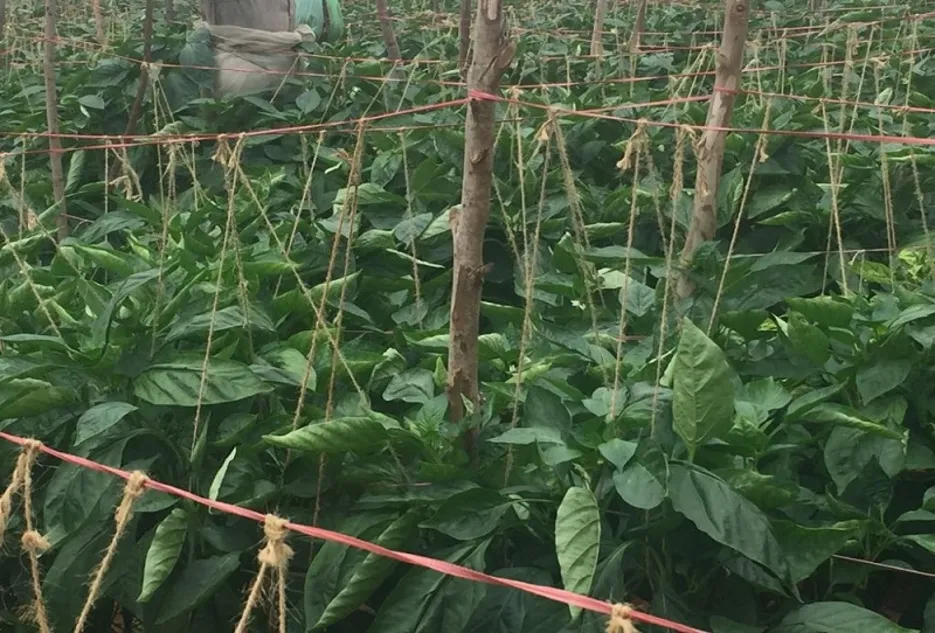
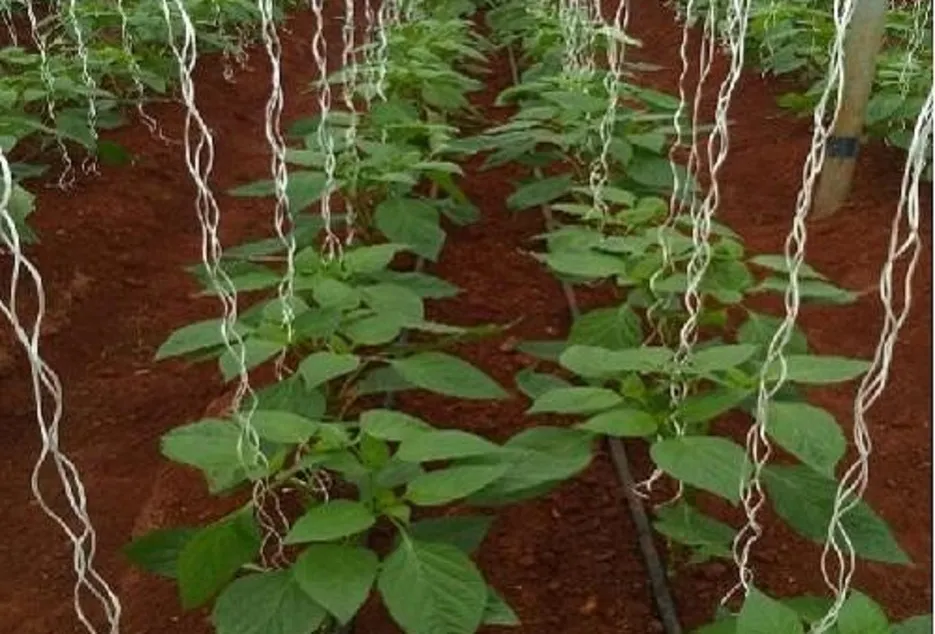
Fruit Selection and Thinning
Fruit Selection and Thinning
Its best practice to remove the first flower from the first split Fruit selection is very important and it’s good to decide fruits at the early stage based on the shape and remaining misshapen fruits should be removed timely Thinning of misshapen fruits at every node gives more support in developing better size of the remaining fruits.
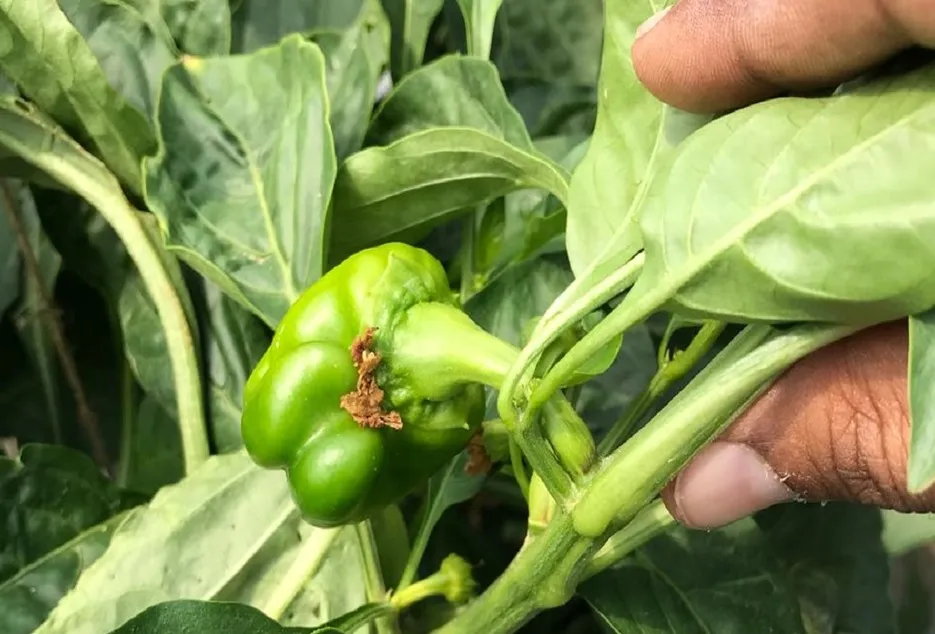
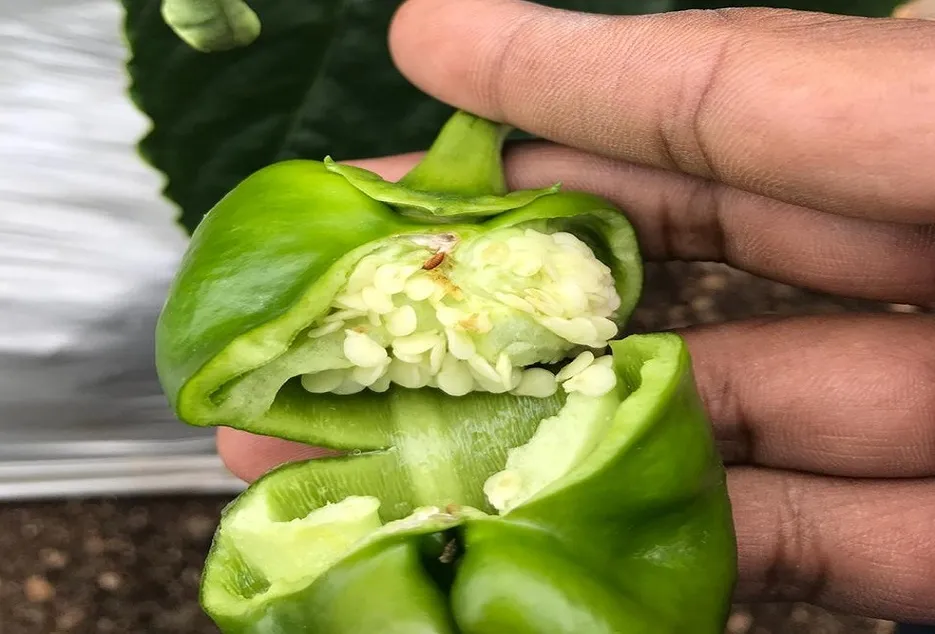
Harvesting
Harvesting
Harvest starts from 80-90 days after planting Harvest interval will be every 6-7 days. it will extend during winter season Harvest fruits at 70-80 % color turn/development stage (depending upon the transport distance and season) Use secateurs for the ease harvest. Farmers can get maximum yield of 35-40 tons per acre if they manage the crop for 250 days in very good condition
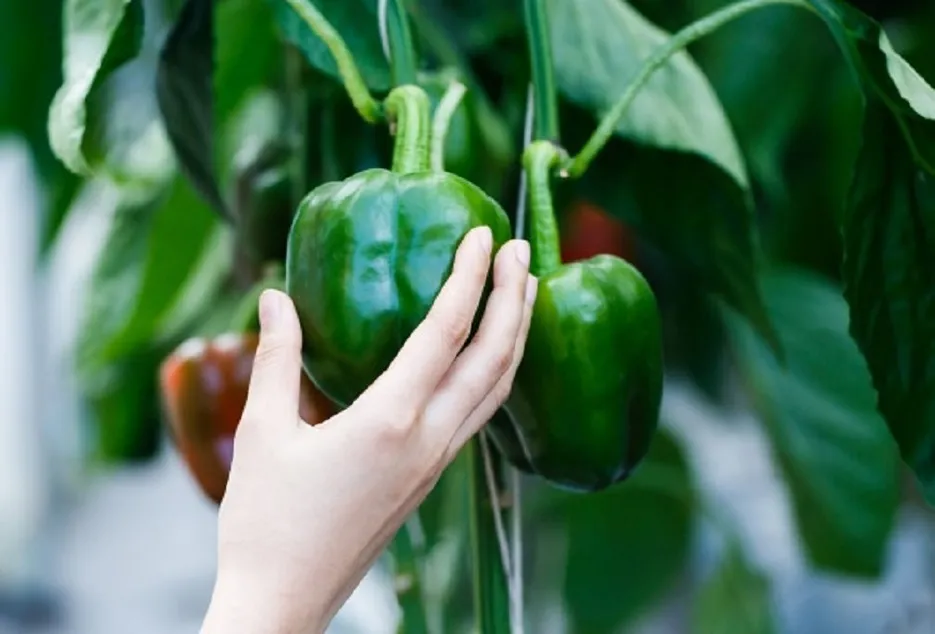
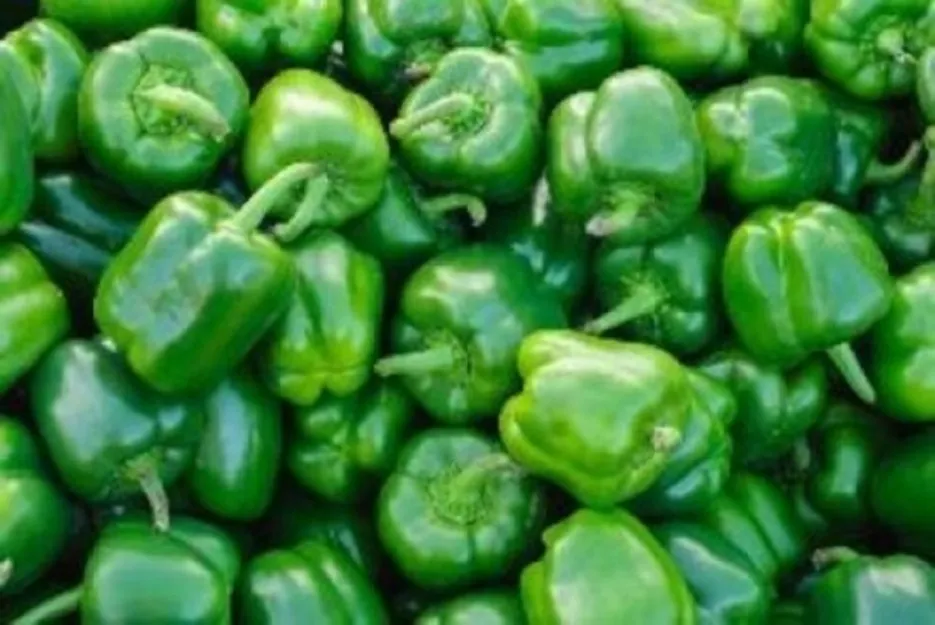
Thank you for reading this article, we hope you clicked on the ♡ icon to like the article and also do share it with your friends and family now!
Thank you for reading this article, we hope you clicked on the ♡ icon to like the article and also do share it with your friends and family now!


